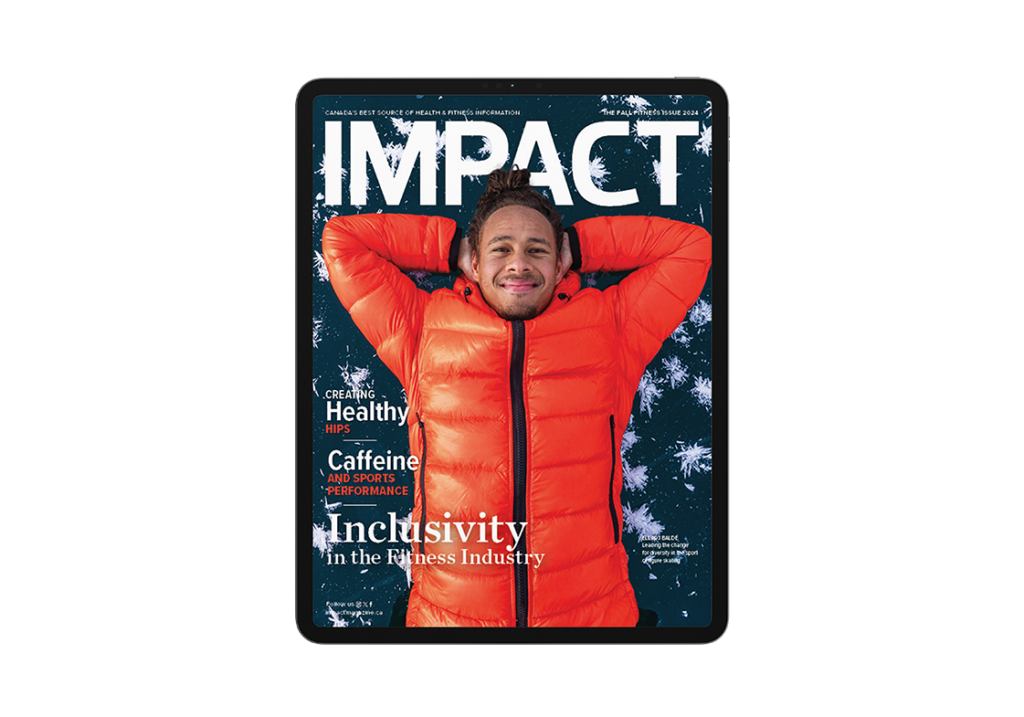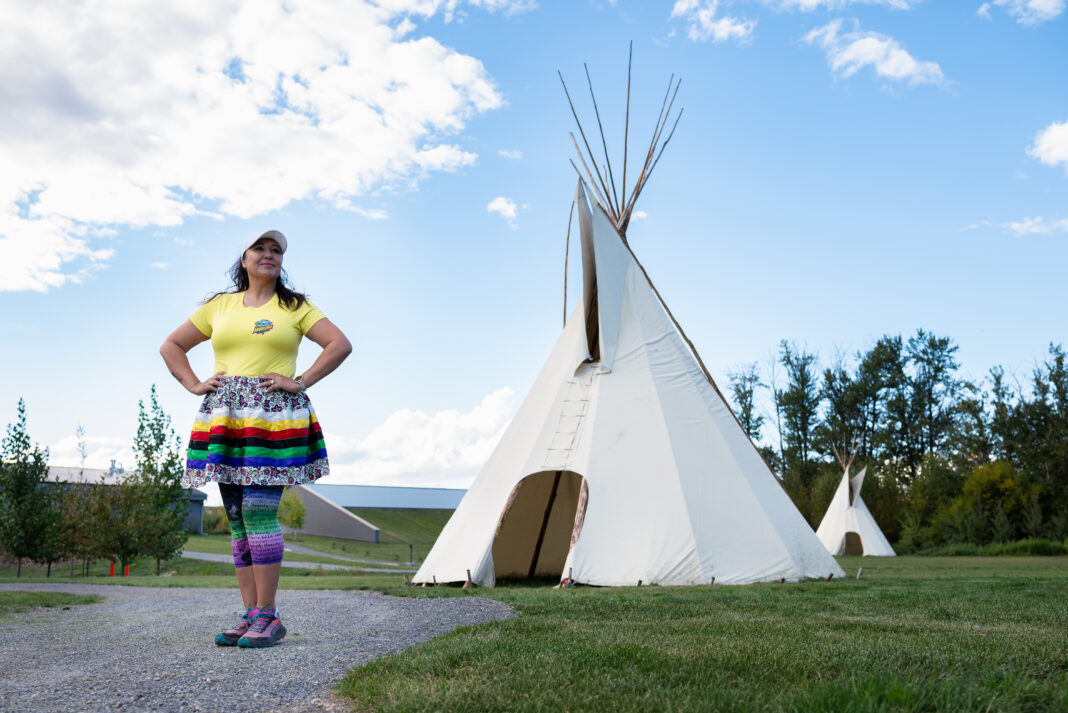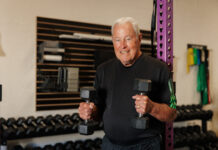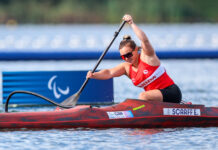Anita Cardinal has reached the lowest point of her race. Gamely, she’s made it through half of the Grizzly Ultra Marathon’s 50-kilometre race, but now she is spent, emotionally and physically.
Tears running down her face, Cardinal wants to quit.
Until she meets “this really cool lady.” The kind stranger joins her on the trail and the two walk quietly for a spell. Then her new friend tells Cardinal an uplifting story about how once, when she was struggling on the course, people stayed with her and provided encouragement. Choking up, she relays to Cardinal their sound advice: “Don’t stop unless you’re proud.”
The words resonated. Now, a decade later, they continue to inspire Cardinal.
“When I’m in that place, I remember,” she says. “That could mean many things, right? I’ve been in situations when I’ve done everything I can and said: ‘This is as far as I can go. I wish I could finish.’ But being proud is different for everybody. It’s very personal. It’s subjective. The important thing is that self-love.”
That day in Canmore, Alberta, Cardinal missed the time cut-off in what had been her first ultramarathon attempt. The following year? You know she crossed the finish line.
The moving message has spirited her through many off-road experiences, including last year’s Javalina Jundred 100-kilometre race in Fountain Hills, Arizona, which she calls her biggest accomplishment in the sport.
Away from the trails, too, the attitude serves her well.
For instance, when Cardinal decided to pursue her childhood dream of becoming a lawyer, she was relentless. In 2022, at the age of 46, she graduated from the University of Alberta’s law school.
“I just keep going, keep going, keep going, and I don’t look up to see what I’m doing till later,” she says. “Don’t stop unless you’re proud, right?”
Running has never felt like a super-inclusive sport. That’s why it’s super important to represent.
Running and law make up only part of the remarkable story. Heroically, she’s meshed those elements to further her true passion—indigenous advocacy and justice.
“It’s been braided together,” says Cardinal, who is Nêhiyaw (Cree) and a member of Woodland Cree First Nation, which is situated on Treaty 8 Territory in northern Alberta.
Determined and generous, she’s been revealed as a leader, a force. There’s no better way to describe Cardinal.
Back when she was chipping away at a bachelor’s degree with night courses, she watched a video in sociology class about the forced sterilization of Indigenous women in Alberta. “I remember feeling so numb, so shocked,” she says. “That was a profound moment in my life.”
The next morning, she brought the issue to the attention of the law firm where she worked full-time as a paralegal. A class-action lawsuit was opened on behalf of those affected, including her mother, May, who became the representative plaintiff.
“That’s what really got me saying, ‘Okay, I am for sure going to apply to law school.'”
Four years ago, Cardinal laid the groundwork for the Orange Shirt Day Run/Walk, which is held September 30, the National Day for Truth and Reconciliation, in Edmonton. Registration continues to increase, and the event has expanded to Saskatoon and Peace River, Alberta.
“Our hope is that more people feel comfortable to participate in events because of the Orange Shirt Day Run/Walk,” she says. “Running brings people together, forwarding that dialogue about residential schools and the harm—and the continued harm. It’s a way to heal because movement is medicine and running is ceremony.”
As founder of the Indigenous Runner club, Cardinal issued a social media “beacon” to welcome runners, to let them know they weren’t alone, to foster a sense of community. “Running has always been a source of joy, communication, sport—all kinds of things—for our ancestors,” she says. “We’re continuing to honour them.”
Through Cardinal’s initiatives, money has been collected for grassroots organizations, such as the Orange Shirt Society. Thanks to fundraisers, two Indigenous teams had their costs covered at this year’s Canadian Death Race.
“Running has never felt like a super-inclusive sport,” she says. “That’s why it’s sup r-important to represent.”
Which is what happened at the Servus Calgary Marathon in May—females wore ribbon running skirts, while males tied ribbons to their hydration packs.
She recently coined the term, “Run Concili-Action,” to make obvious the desire to do more than talk. It’s a notion she exemplifies. On top of advocacy projects, race and club commitments, lawyer duties and volunteer shifts, Cardinal finds time to hit the trails.
Preparing for two races in Arizona, the Black Canyon Ultra in February and the Antelope Canyon Ultra in March, she enjoys exploring Edmonton’s river valley.
She refers to the network of paths as her “place of refuge” and the demanding pastime as her therapy.
“That’s one of the things I love about ultra running,” says Cardinal. “You really, truly come to this raw place. You face yourself—your good, bad and ugly—and you come through it a better person. Because you’re strong and you realize your strength.
“In that weakness, you discover your own strength. That’s the beautiful part about it and why I love it so much.”
Photographed with permission on the kihcihkaw askî-Sacred Land, Whitemud Park, Edmonton, AB.
Photography by Jonathan Deschenes
You may also like: Athletes with IMPACT

Read This Story in Our 2024 Fall Fitness Issue
Featuring Canadian Taekwondo Olympian, Skylar Park. Must-visit adventure destinations across Canada. Your best trail running season ever with FAQs and threshold training plans. How (and why) gravel biking can rule your summer. Essential preparation to stay injury-free during hikes. Zero-waste your hiking and camping trips like a pro. Treat yourself with a Rustic Strawberry Chocolate Tart or Dairy-Free Vanilla Ice Cream, and so much more.
















